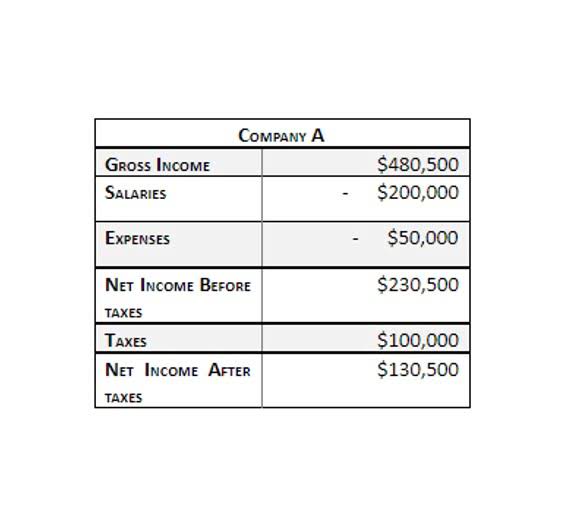Adres engellemelerine karşı hazırlanan online bahis bağlantıları kullanıcıların kesintisiz erişimini sağlıyor.
Mobil cihazlardan erişim kolaylığı sunan Paribahis kullanıcı dostudur.
2025 yılında yeni sürümüyle paribahis giriş piyasaya çıkıyor.
2025 yılında piyasaya çıkacak olan Bettilt versiyonu yeni kampanyalarla geliyor.
What Is Financial Accounting? Definition, Principles, Statements

Many businesses conduct internal or external audits to verify the accuracy of their financial records. The Association of Certified Fraud Examiners (ACFE) reports that businesses lose 5% of their revenue annually due to fraud, making accurate financial reporting crucial. Financial accounting is intended to provide financial information on a company’s operating performance. Financial accounting is the widely accepted method of preparing financial results for external use. Financial accounting is a specific branch of accounting involving a process of recording, summarizing, and reporting the myriad of transactions resulting from business operations over a period of time. Financial statements provide crucial information for stakeholders to assess a company’s profitability, financial health, and cash flow management.
Importance of Financial Accounting for Stakeholders
For example, the balance sheet reports assets and liabilities while the income statement reports revenues and expenses. Financial accounting is governed by accounting rules and contribution margin regulations such as U.S. GAAP (Generally Accepted Accounting Principles) and IFRS (International Financial Reporting Standards). Financial accounting is the process of recording, summarizing, and reporting the financial transactions of a business.

Key Takeaways
Financial accounting is the process of recording, analyzing, and summarizing the financial transactions of an organization for an accounting period. Financial accounting software solutions are cloud-based tools that record and manage the day-to-day financial transactions of an organization. Moreover, these tools also help organizations manage revenue, fixed assets, accounts receivables, and accounts payables. The cash accounting method records transactions when the money exchange happens. For example, an organization records income after receiving cash from sales and expenses after processing accounts payables. GAAP is used in a given jurisdiction and contains the guidelines to follow.GAAP includes the rules accountants follow when preparing financial statements.

Essential Financial Accounting Principles
The balance sheet shows what a company owns and owes at a specific point in time. It’s like a snapshot of the business’s financial condition on a particular date. Asset and expense accounts typically increase with debits, while liability, equity, and revenue accounts increase with credits. Using the earlier example, buying $500 of supplies (an asset) increased an asset account, so we debited Supplies. The cash account was decreased (cash is an asset going down), so we credited Cash. Financial accounting also promotes overall transparency and comparability across businesses, which strengthens trust in the financial markets and supports a stable economy.
- Financial accounting definition refers to the process that documents, classifies, reports, and analyzes business transactions to assess the financial health of an organization.
- It focuses totally on cash and does not account for depreciation, amortisation charges, or costs financed with debt (in contrast to an income announcement).
- Around 5,000 years ago in ancient Uruk, a man named Kushim—believed to be an accountant or administrator—became the earliest known individual recorded by name.
- Suppose we are considering lending to, or investing money in, a manufacturer for an expansion.
- You must maintain separate accounting records for your business that are distinct from your personal finances or other business entities you may own.
What are the fundamental principles and concepts guiding financial accounting?

Effective management of accounts receivable is crucial for maintaining a healthy cash flow, as it ensures that the company collects payments in a timely manner. At its core, financial accounting means recording every transaction your business makes and organizing it into a clear picture of your finances. The software — or your financial accounting meaning business accountant — sorts transactions into the right accounts and then generates reports that show where your business stands financially. A statement of net worth that showcases an organization’s assets, liabilities, and shareholders’ equities at a particular time.
Separate statistics for individual activities, which may be required by management for decision-making, are not accounted for by financial accounting. Financial accounting provides comprehensive information on all cash flows in a firm. Financial accounting provides all necessary data to owners, creditors, and stakeholders, helping them determine the true standing of the company. To determine if a company is worth investing in, you can look at the total assets and total liabilities of the company. The main difference between them is the timings in which transactions are recorded.

Matching Principle
Interest expense on loans and bonds, losses from asset disposals, and foreign exchange gains or losses constitute Mental Health Billing non-operating expenses. Treasury stock, if applicable, represents shares your company has repurchased from the market. The equity section reflects the financial foundation and accumulated wealth of your business. These obligations directly impact your company’s working capital and short-term financial flexibility. These assets demonstrate your company’s liquidity and ability to meet short-term obligations. When you use reversing entries, you’re streamlining your accounting process and reducing the likelihood of errors in the new period.

It helps owners see the value of the business, and it also shows in detail the causes of rises and falls in equity over a period of time. However, unlike an income statement, a cash flow statement will not show any depreciation, amortization costs, or debt. This principle ensures expenses are recorded in the same period as the revenue they helped generate.
